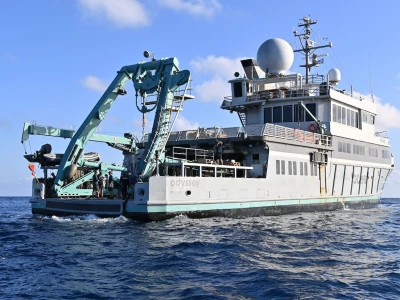
Court denies order to halt Noonu atoll island lease
While filing the complaint, the council said it had filed a complaint against the President's Office.
Top Stories
By
Aman Haleem
The Civil Court has decided not to issue a stay order on a petition filed by the Noonu Atoll Council against the President's Office regarding the lease of two islands for tourism development in Noonu Atoll.
In September last year, the Atoll Council passed a resolution to stop the grant of islands and lagoons in Noonu Atoll, saying it did not benefit the people of the atoll.
This was in connection with a 21-year lease grant to Tholhendhoo atoll. In the Tholhendhoo case, the Civil Court issued an interim injunction restraining the island from being released. When the state challenged the order, the High Court also upheld the order.
Currently, a case is pending in the court regarding granting Kendhivaru and Kandoodhoo (Dhona-eri-kandoodhoo) for long-term tourism development. While filing the complaint, the council said it had filed a complaint against the President's Office as the decision to give islands without consulting the council was in violation of the decentralization law.
Noonu Atoll Council cited the reasons for seeking an interim injunction in the case:
-
The power of the judgment will be curtailed if the islands are leased out before the court decides
-
Incorporating the interests of the Council in both the islands as the highest advocate for the people of atolls
-
Irreparable damage and a situation where the sentence cannot be executed if the island allotment agreements are in place
In response to the denial of the interim order, the state told the court that since both the islands had agreed to be leased out, the state's interest in the case was more in view of the damage it could cause by terminating the agreement.
-
Kendhivaru – leased to Damak Ocean Heights Company on 22 December
-
Kandoodhoo – On December 12, 2017, the Abu Dhabi Fund for Development was allocated cross-subsidy for N. Maafaru international airport project.
The state also pointed out that in cases of judicial review of this nature under the existing Civil Procedure Act, it was mentioned that the court should seek a solution by filing a case only as the last resort, but the council had not done such a thing.
Criticising the council's actions, the state said that apart from issuing a resolution in the matter and challenging the decision, there was no discussion to find an amicable solution to the issue. At present, there is scope for discussion as mandated in the Decentralization Act and a case of judicial review cannot proceed at first, the state said.
Even the court was burdened with this exit. The trial court noted that as the state pointed out in the case, the atoll council did not produce a document to indicate the efforts made by the atoll council to find a solution as mandated by the Civil Procedure Code.




